
THREAD: bidens covid battle and trumps...
LifeLine™ Media threads use our sophisticated algorithms to construct a thread around any topic you want, providing you with a detailed timeline, analysis, and related articles.
News Timeline

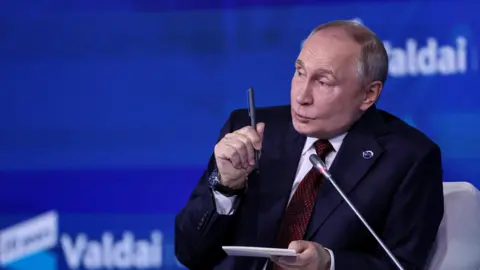
— Trump’s new tariffs threaten Indian liquor, meat, and sugar sectors The US President’s upcoming tariff plan aims to address the trade deficit, potentially impacting Indian businesses significantly depending on implementation specifics
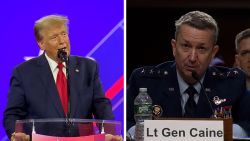
— Trump trade war could cost $14 trillion as UK braces for new tariffs Economists warn that the escalating trade conflict may severely disrupt business confidence and operations in Britain

— Canaccord Genuity sells US wholesale market making business The firm has signed a deal with Cantor to streamline its US operations and focus on core advisory and capital raising strengths

UK Government’s BOLD Move to OVERRIDE Controversial Sentencing
— The UK government plans to pass an emergency law to override newly released sentencing guidelines. This decision follows criticism from Conservative shadow justice secretary Robert Jenrick, who accused the Sentencing Council of yielding to outside pressures. The guidelines aimed at addressing sentencing disparities among ethnic groups but have sparked significant controversy.
New legislation will be introduced to tackle heated debates over the sentencing of ethnic minority offenders. The law seeks to address delays in justice for victims, especially those reporting serious crimes like rape, who face long waits for trials. This initiative highlights the government’s commitment to ensuring timely justice and addressing public concerns over fairness in the legal system.
Delaware’s STRATEGIC Law Change: Keeping Businesses HOME
Delaware has enacted changes to its corporate conduct regulations following high-profile departures like Elon Musk’s exit from the state. This legislation aims to prevent further corporate exoduses and underscores Delaware’s commitment to maintaining a business-friendly environment. By adapting its laws, Delaware seeks to retain businesses and bolster its economic standing amid competitive pressures from other states.
GOVERNMENT’S BOLD Move: Sentencing Rules Overhaul Sparks Fury
— The UK GOVERNMENT plans to override sentencing guidelines amid a heated debate over ethnic minority offender sentencing. This move comes as victims of serious crimes face long delays in seeing suspects tried. Some cases, including rape, have seen trial delays extending up to four years.
In response, the government announced an emergency law to counteract the Sentencing Council’s guidance. The Council aimed to address racial disparities in justice but faced significant opposition. Conservative shadow justice secretary Robert Jenrick criticized the Council for yielding under pressure after he threatened legal action against them.
The Sentencing Council comprises senior legal figures from England and Wales who believed their guidelines would promote fairness across ethnicities. However, the government’s decision reflects concerns over potential negative impacts on crime victims’ rights and timely justice delivery.

ISRAEL’S Bold Move: 25% of Gaza to be Occupied Amid Rising Conflict
— A senior Israeli official has announced plans to occupy 25% of Gaza in the next two to three weeks. This bold move comes amid rising tensions and ongoing conflict in the region, sparking significant concerns.
The humanitarian situation in Gaza is worsening as the conflict heats up. The international community is watching closely, urging restraint and pushing for negotiation efforts.
Various international bodies are calling for calm as they observe the unfolding situation. Their focus remains on finding a peaceful solution to prevent further escalation.

TRUMP’S Bold Stance on Auto Price Hikes and Global Diplomacy Revealed
— President Donald Trump recently declared he “couldn’t care less” if foreign automakers hike prices due to his auto tariffs. This bold move shows his commitment to putting American interests first, despite foreign economic pressures. Trump also confirmed he won’t fire anyone involved in the Signal group chat controversy.
Internationally, Iran has rejected direct nuclear talks with Trump but is open to indirect discussions. The President has warned of military action if Tehran doesn’t agree to a nuclear deal with Washington, highlighting his strong approach to national security and diplomacy.
Trump criticized Russian President Vladimir Putin and warned of secondary tariffs on nations buying oil from Russia amid Ukraine tensions. These potential tariffs are part of Trump’s broader strategy as he nears an April 2 deadline for major tariff actions against adversaries while staying open to negotiation deals.
Domestically, Republicans face challenges as Democrats aim for gains in Florida’s Sixth District despite Trump’s past success there. Meanwhile, Trump withdrew Congresswoman Elise Stefanik’s nomination for U.N. ambassador amidst a slim GOP House majority and upcoming special elections, underscoring internal party dynamics and strategic shifts before future political battles.
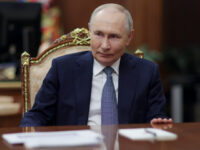
PUTIN’S Bold Peace Plan: Brics And North Korea In Ukraine Talks?
— Russian President Vladimir PUTIN has proposed a fresh approach to peace talks in Ukraine, suggesting the expanded BRICS group play a role. This collective now includes Egypt, Iran, UAE, and Ethiopia. In 2024, thirteen more nations joined as "partner countries.
PUTIN’s comments left it unclear if all new members and partners would join the talks. Including North Korea could complicate things due to its military support for Russia against Ukraine. South Korea reported that North Korea sent troops and weapons to help Russia’s war efforts.
Amid these events, North Korean leader Kim Jong-un plans another visit to Russia this year. Russian Deputy Foreign Minister Andrew Rudenko confirmed the visit is being arranged but didn’t provide a date. Kim visited Russia in 2019 and 2023, strengthening ties between the two countries.
During his Murmansk visit, PUTIN suggested replacing Ukrainian President Zelensky with an interim international administration under UN oversight for peace accords and elections. He proposed including the U.S., European countries, and Russia’s allies in this temporary governance structure for Ukraine.
:max_bytes(200000):strip_icc()/Prince-Charles-60th-birthday-090822-906a074f57d0467c937244741d24feba.jpg)
KING Charles III’S Courageous Fight: Cancer Battle Takes a Toll
— King Charles III was briefly hospitalized due to side effects from cancer treatment, causing the cancellation of public events on Friday. The 76-year-old monarch has been fighting an undisclosed type of cancer for over a year. Despite these challenges, he plans to resume his duties soon with a state visit to Italy next month.
The royal family has faced major health issues since January 2024 when both King Charles and Kate, the Princess of Wales, were hospitalized for different medical procedures. Doctors found that both had cancer, marking a tough time for the family. While Kate finished chemotherapy in September, King Charles continues his treatment.
Charles’s reign began with Queen Elizabeth II’s passing and included his first foreign visit as king to Germany and his coronation at Westminster Abbey. His determination to carry out royal duties despite personal health struggles is clear in his upcoming plans. The king’s resilience shows his commitment during these trying times for the royal family.

TRUMP’S BOLD Move: Stefanik’s UN Nomination Withdrawn to Boost GOP Strength
— President Donald TRUMP has withdrawn Representative Elise Stefanik’s nomination for U.S. Ambassador to the United Nations. The decision aims to keep Republican strength in the House, where every vote counts due to their narrow majority. Trump stressed that keeping Stefanik in Congress is crucial for party stability during these critical times.
House Minority Leader Hakeem Jeffries commented on the changing political landscape Republicans face, hinting at challenges ahead for the GOP. Senate Majority Leader John Thune acknowledged the “political realities” confronting Trump’s administration as they work to maintain a functional majority in Congress.
Stefanik, a strong Trump ally and influential GOP figure, was initially seen as an ideal candidate for the ambassador role. However, Trump’s decision highlights internal party dynamics and strategic considerations amid current political challenges.
This move raises questions about future cabinet appointments under Trump and potential impacts on Republican strategies as they navigate a complex political environment. The withdrawal reflects broader concerns about maintaining legislative power and unity within the party during this pivotal period.
HONG KONG Artist’S Paintings Capture City’S Bold Transformation
— Hong Kong artist Chow Chun-fai’s latest works at Art Basel capture the pivotal night in 1997 when Hong Kong returned to Chinese rule. This event marked the end of British colonialism and the start of a new era under China. Since 2020, China’s national security law has stifled dissent, prompting many to emigrate.
Chow chose to stay in Hong Kong, continuing to document its evolving identity through art. His paintings at Art Basel revisit memories from the late 1990s and early 2000s, highlighting a time when Hong Kong was vibrant and open. “We are living through such a momentous time ourselves now,” Chow stated ahead of the exhibition.
Chow is known for his creative reinterpretations of classic movie scenes that provoke reflection on Hong Kong’s history and identity. He also gained attention for running against pro-establishment candidates in past elections, though he did not win.
His Art Basel pieces focus on significant news events like the 1997 handover and China’s rise as an Olympic host nation in 2008, drawing inspiration from stories covered by former journalist Sharon Cheung. These works underscore Chow’s commitment to capturing his city’s complex narrative amid political changes.

FIDELITY and TRUMP’S Bold Move: Stablecoins to Revolutionize Finance
— Fidelity is pushing forward with its digital asset strategy by testing a new stablecoin. This aligns with the Trump administration’s plans to overhaul cryptocurrency oversight, marking a big change in the financial world. Fidelity’s move shows how important stablecoins are becoming in modern finance.
Donald Trump’s World Liberty Financial is launching a dollar-pegged stablecoin called USD1. It will be fully backed by U.S. Treasuries and other cash equivalents, ensuring stability and trust for investors. This launch highlights Trump’s ongoing influence in finance, especially digital currencies.
In Canada, Tesla faces halted rebate payments due to trade tensions with the U.S., impacting its operations as taxis or ride shares. Rebates will stay frozen until individual claims are checked, showing ongoing international trade challenges under current policies.
Moody’s has issued warnings about worsening U.S. public finances under Trump’s policies, which could make it harder to manage rising deficits and debt levels effectively.

TRUMP DOJ’S Bold Move: Deportation of Anti-Israel Activist Ignites Debate
— The Department of Justice under President TRUMP is seeking the deportation of Momodou TAAL, a Cornell University student and anti-Israel protester. Court documents show that TAAL, who holds dual citizenship in the UK and Gambia, has been asked to surrender to immigration authorities. This action follows his vocal support for resistance against Israel on social media.
Eric Lee, TAAL’s attorney, shared that he was informed via email about the government’s plan to start deportation proceedings. Lee criticized Trump’s actions as an “urgent threat of dictatorship.” He mentioned that ICE has invited TAAL to their Syracuse office for personal service of a Notice to Appear (NTA) and subsequent surrender.
TAAL’s activism grew after the October 7 Hamas attacks in 2023. Though he entered the U.S. on a student visa in 2022, he has openly expressed disdain for America and called for its downfall on platforms like X. His controversial statements have sparked both support and opposition within Cornell University’s community.
Hundreds rallied at Cornell University last week in solidarity with TAAL, though he did not attend himself. In a recent post on X, he assured followers of his safety and readiness to present his case in court soon. The situation highlights ongoing tensions surrounding immigration policies under TRUMP’s administration.

250 YEARS of “GIVE ME Liberty Or Give ME Death”: A Timeless Battle CRY
— The phrase “Give me LIBERTY or give me death!” has echoed through history, from Tiananmen Square to COVID-19 protests in the U.S. Malcolm X used it in 1964 for equal rights for Black Americans. President Donald Trump quoted it on Truth Social during his criminal hush money trial last year.
Originally spoken by Patrick Henry 250 years ago, the phrase urged Virginia colonists to prepare for war against Britain. This call came as tensions rose in Massachusetts with British control over Boston. Historian John Ragosta emphasizes that Henry’s speech was about community and national unity, not personal gain.
Henry’s speech was about 1,200 words long but is remembered for those seven iconic words that have endured like Shakespearean lines. Patrick Henry Jolly, a descendant of Henry, notes its adaptability across various contexts while stressing the importance of understanding its original meaning.
:max_bytes(150000):strip_icc()/GettyImages-2205546226-094017e814a549c385120f0d98f0f4e2.jpg)
TRUMP’S BOLD Move: SBA to Take Over Student Loans?
— President TRUMP announced a plan to shift federal student loan management to the Small Business Administration (SBA). This move aims to reduce the Department of Education’s role in student lending. Trump shared few details on how this change would happen but promised a smooth transition for borrowers.
The decision to use the SBA, led by former Georgia Sen. Kelly Loeffler, is surprising given its smaller size and focus on business loans. The agency has limited experience with programs as large as federal student loans. Critics argue this shift could face legal challenges due to potential overreach of the SBA’s usual duties.
Trump has hinted at this change for weeks, but questions remain about why the White House chose the SBA specifically for this task. The administration’s reasoning behind picking an agency with little experience in educational finance is unclear. Experts worry about possible disruptions and legal issues from such a big administrative switch.
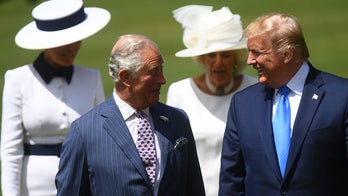
TRUMP’S BOLD Move: US to Join British Commonwealth?
— Former President Donald Trump is excited about the United States possibly joining the British Commonwealth. He shared his thoughts on Truth Social, linking to a Daily Mail report suggesting King Charles III might offer associate membership during Trump’s next state visit to Britain. “I love King Charles,” Trump said, adding that the idea “sounds good” to him.
The British Commonwealth, formed in 1926, includes 56 countries like Australia and Canada, many of which were former British colonies. The monarch serves as the head of this voluntary group. Queen Elizabeth II focused heavily on maintaining these ties throughout her reign.
Fox News Digital has asked the White House for comments on this potential development but hasn’t received a response yet. Meanwhile, experts believe Prince William sees strong ties with figures like Trump as vital for the monarchy’s future stability and influence worldwide.

TRUMP’S BOLD Move: Plans to Shut Down Education Department
— President Donald Trump intends to sign an executive order to close the U.S. Education Department. He believes this will cut federal spending by eliminating unnecessary departments. Critics argue it could harm public education, while supporters think it will boost local control. SHOCKING Shooting in Monessen: Community on EDGE
A shooting took place on Knox Avenue in Monessen, Westmoreland County this morning. Emergency responders confirmed one person was shot, but the victim’s condition is unknown. Authorities are investigating and urge anyone with information to come forward as no suspects are in custody yet. DEVASTATING Fire DAMAGES Home in Westmoreland County
Early Thursday morning, a fire damaged a home in Monessen, Westmoreland County. Firefighters contained the flames with no reported injuries, but the house suffered significant damage. The cause remains under investigation as crews ensure the fire does not reignite. TRUMP’s CONTROVERSIAL Proposal: US Control Over Ukraine’s POWER PLANTS
In a call with Ukrainian President Zelensky, President Trump suggested U.S. control over Ukraine’s power plants to stabilize tensions with Russia and ensure energy security for Ukraine. This proposal has sparked controversy over its impact on Ukraine’s sovereignty and international relations.

TRUMP and MCGREGOR Unite: A Bold Stand Against Ireland’s Immigration Crisis
— On St. Patrick’s Day, former UFC champion Conor McGregor met with the Trump administration to discuss Ireland’s immigration problems. McGregor criticized illegal immigration’s impact on rural Irish towns, warning they are overrun and urging 40 million Irish Americans to pay attention.
While many in the U.S. supported McGregor’s remarks, Dublin’s leftist government quickly condemned them. Prime Minister Micheál Martin stated that McGregor’s comments did not reflect Ireland’s spirit or views, while Foreign Affairs Minister Simon Harris emphasized that McGregor does not officially represent Ireland.
Despite these criticisms, polling suggests a disconnect between Dublin officials and public sentiment regarding immigration levels in Ireland. A 2024 Amárach Research survey revealed that 79% of Irish voters believe too many immigrants enter the country annually, with only 2% supporting increased migration.
Furthermore, 61% of respondents expressed dissatisfaction with how Dublin handles immigration concerns, feeling ignored by their leaders’ policies. This data highlights a significant gap between political leadership and public opinion on this crucial issue in Ireland.

TRUMP’S Bold Move: How NEW Tariffs Rattle the Stock Market
— U.S. stocks fell sharply as President Donald Trump’s tariffs on Canada and Mexico took effect, sparking economic fears. Investors worry about the potential impact amid existing uncertainties. Analysts warn of a possible recession, urging caution in market activities.
The S&P 500 and Nasdaq composite saw major drops, hitting technology stocks hard. Companies across sectors are revising forecasts due to these new trade policies. Experts suggest these tariffs could worsen inflation and reduce consumer spending soon.
These tariffs are part of Trump’s broader trade agenda to boost U.S. manufacturing but risk retaliatory actions that may harm American businesses and consumers. The market remains bearish as analysts closely watch for policy fallout effects.

TRUMP’S Bold Promise: "Expose" Justice Department Foes
— President Donald TRUMP visited the Justice Department, using the platform to criticize ongoing criminal investigations against him. He vowed to investigate and jail his political enemies, framing his speech as a “law-and-order” initiative. This marked an unprecedented move, as no president has delivered such a politically charged address at the Justice Department since 2014.
Trump expressed confidence in exposing alleged misconduct by adversaries within politics. His speech signals a significant moment in U.S. politics, intertwining law enforcement with political strategy. The audience was mainly composed of Trump supporters, including figures previously scrutinized by the Justice Department.
The event has sparked both support and criticism across the nation, reflecting Trump’s polarizing influence on American politics. His approach could further deepen divisions within an already fractured political landscape. As Trump continues to challenge traditional presidential norms, his actions may have lasting implications for future administrations and their relationship with law enforcement agencies.
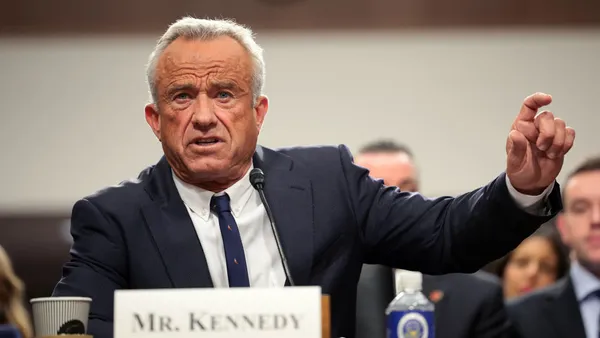
“HEALTH Secretary’s BOLD Move to Protect Your Family from Harmful Additives”
— Health and Human Services Secretary Robert F. Kennedy Jr. met with top food executives to discuss stricter regulations on food additives. This move is part of his “Make America Healthy Again” agenda. The meeting responds to growing public concern over the safety of chemicals in processed foods.
A recent poll shows 58% of Americans want the Trump administration to prioritize limiting these chemicals in the food supply. This highlights a strong demand for action from the public on this issue.
During the meeting, discussions included potential rules that could limit certain chemicals found in processed foods. The initiative aims to enhance health standards and address public anxiety over food safety concerns.

MAGNACHIP’S BOLD Shift: Power Move to Boost Profits
— Magnachip Semiconductor Corporation is shifting gears to focus solely on its Power business. This decision comes after a thorough review by the Board of Directors and management. The goal is clear: boost revenue growth and maximize shareholder value.
The company plans to explore options for its Display business, which will be marked as discontinued in Q1 2025 results. Possible paths include selling, merging, forming a joint venture, licensing, or winding down operations. Magnachip aims for steady profitability and earnings growth during this shift.
By Q4 2025, Magnachip targets quarterly Adjusted EBITDA break-even from ongoing operations. It plans for positive adjusted operating income by 2026 and positive adjusted free cash flow in 2027. The Power segment caters to broader markets with longer product cycles compared to the smartphone-centric Display segment.
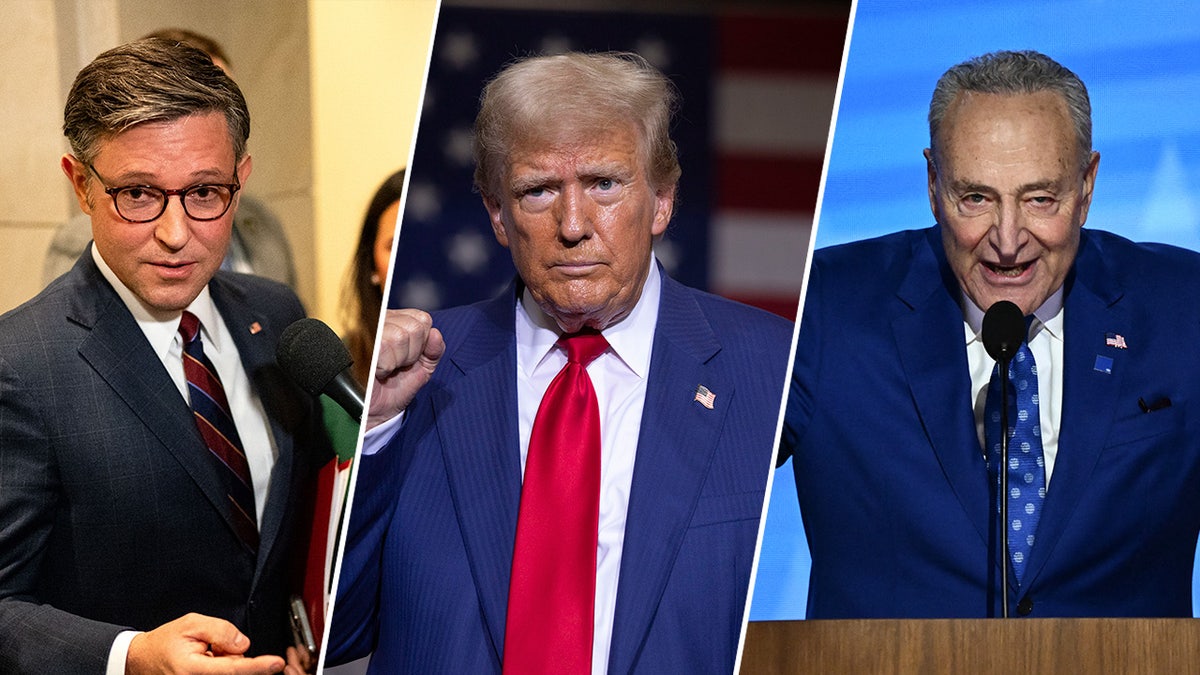
TRUMP’S BOLD Critique of Schumer Sparks Shutdown Showdown
— President TRUMP has sharply criticized Senate Minority Leader Chuck Schumer, claiming he is “not Jewish anymore.” This remark comes as Democrats refuse to back a Republican spending bill.
Schumer and fellow Democrats stand firm, increasing pressure on Congress as the shutdown deadline approaches. They argue Republicans lack the votes needed to pass their bill.
Schumer urges bipartisan compromise to prevent disruption of government services affecting thousands of federal workers. Both parties are strategizing intensely, but Trump’s bold tactics add unpredictability to the situation.

MARTYN’S LAW: A Bold Step to Protect Public Spaces
— The proposed MARTYN’S LAW has cleared its third reading in Parliament, marking a major step forward. This legislation aims to boost security at public venues. Lord Hanson described the law as a tribute to terror attack victims.
Named after Martyn Hett, who died in the 2017 Manchester Arena bombing, the law seeks to prevent similar tragedies. It requires stricter security protocols for large gatherings and public spaces.
Supporters say these measures are vital for protecting citizens from future attacks. Critics worry about potential costs and logistical challenges for venue operators.
As the bill moves forward, it continues to spark debate on balancing safety with individual freedoms and economic impacts on businesses. The outcome will shape how public events are managed across the nation.
TRUMP’S BOLD 200% EU Wine Tariff Threat Sparks Trade Showdown
— President Donald TRUMP has announced a potential 200% tariff on European Union wine and liquor. This decision comes in response to the EU’s proposed 50% tariff on American whiskey. The move heightens trade tensions between the U.S. and its traditional ally, the EU.
American retailers are worried about how these tariffs might affect consumers. They warn that such measures could lead to higher prices for imported goods, adding pressure to an already strained economic relationship with Europe.
The Trump administration’s approach shows a broader strategy of using tariffs as leverage in international trade talks. These actions aim to fix perceived imbalances in trade agreements with global partners. However, critics argue they may harm both businesses and consumers at home.

MAGNACHIP’S BOLD Move: Shift to Power Business Promises Big Profits
— Magnachip Semiconductor Corporation is making a bold shift to focus solely on its Power business. This strategic move, decided by the Board and management, aims to boost revenue growth and increase shareholder value.
The company plans to phase out its Display segment, classifying it as discontinued in the next Q1 results. Options like selling or merging this segment are on the table. The goal is clear: ensure steady profits and keep shareholders happy.
Magnachip aims for quarterly break-even by Q4 2025 and expects positive operating income by 2026. By 2027, they foresee positive free cash flow. The Power business will target stable markets with long product cycles, unlike the unpredictable smartphone market of their Display segment.
TRUMP’S Bold Education Overhaul: A Game-Changer?
— President Donald Trump has proposed major changes to the Education Department, aiming to reduce its size and influence. He appointed Linda McMahon as the new education chief with a clear mission: make her role obsolete. This move is part of a broader strategy that could eventually lead to closing the department, although such a step would need congressional approval.
The Trump administration has started restructuring efforts within the department. Under Elon Musk’s Department of Government Efficiency, numerous contracts labeled “woke” or wasteful have been terminated. Additionally, the Institute of Education Sciences has been significantly downsized, impacting its data collection on academic progress nationwide.
Despite these cuts, federal funding remains vital for many educational institutions across the country. President Trump plans to redirect federal funds away from schools promoting “critical race theory” and other controversial content while supporting initiatives like universal school choice programs. Though federal contributions account for only about 14% of public school budgets, colleges heavily rely on this funding through research grants and student financial aid programs.
Closing the Education Department would involve redistributing its responsibilities to other agencies. This includes managing billions in federal funds allocated annually to schools and colleges and overseeing regulatory roles for services benefiting students with disabilities or from low-income backgrounds. Trump’s vision emphasizes rewarding states that align with his educational priorities while reducing bureaucratic oversight at the federal level.
UKRAINE’S BOLD Move: US-Backed Ceasefire Sparks Hope
— Ukraine has agreed to a U.S.-proposed one-month ceasefire with Russia, if Russia follows the terms. This follows talks with U.S. National Security Advisor Mike Waltz, Secretary of State Marco Rubio, and Saudi Foreign Minister Prince Faisal bin Farhan Al Saud. This is a crucial step amid rising tensions in the region.
The ceasefire proposal shows increased diplomatic efforts by various nations to stabilize Eastern Europe. Saudi Arabia’s involvement highlights its growing role in international peace efforts and may lead to more comprehensive negotiations in the future.
Ukraine’s decision reflects a strategic move towards diplomacy while being cautious about Russia’s commitment to the terms. As global attention turns to this truce, it’s crucial for both sides to adhere strictly for lasting peace prospects.
This development is key for ongoing talks about Ukraine’s conflict with Russia and could lead to stronger diplomatic resolutions if successful. The world watches closely, hoping for peace in this long-standing conflict zone.
GREENLAND’S Center-Right Victory: A Bold Move For Freedom
— Greenland’s center-right opposition party claimed victory in a key parliamentary election on Tuesday. The election was shaped by U.S. President Donald Trump’s past annexation threat and growing local calls for independence from Denmark.
A January poll showed 85% of Greenlanders were against joining the United States, with nearly half seeing Trump’s interest as a threat. This feeling influenced the election results, showing strong resistance to foreign control.
The winning party’s pro-business approach appealed to voters wanting economic growth and freedom from Danish rule. This change is crucial for Greenland’s political scene and its future ties with global powers.

UK ASSISTED DYING Bill Shock: Parliament’s Bold Move Stirs Debate
— The UK Parliament has decided to remove the need for judicial approval in the controversial ASSISTED DYING BILL. This decision has sparked intense political and public debate. The change marks a significant shift in how assisted dying will be regulated across the nation.
In a diplomatic move, the UK government revoked accreditation for two Russian diplomats amid rising espionage concerns. This action mirrors steps taken by Russia and highlights ongoing tensions between the two nations. The decision underscores Britain’s firm stance on national security issues.
A maritime incident in the North Sea led to the arrest of a cargo ship captain on suspicion of manslaughter after colliding with an oil tanker. This raises critical questions about maritime safety regulations in British waters. Authorities are conducting thorough investigations to determine accountability and prevent future occurrences.
Environmental concerns at Lake Windermere have prompted government action following severe pollution from sewage overflow. The UK government has pledged immediate measures to clean up this iconic beauty spot as part of its broader environmental restoration efforts. Meanwhile, Prime Minister Keir Starmer faces criticism for blocking a bill banning first-cousin marriages due to health risks, reigniting debates on public health policy and cultural traditions.

US RESUMES SECURITY Support to Ukraine: A Bold Move for Peace
— The United States will restart military aid and intelligence sharing with Ukraine. This decision comes after Kyiv showed it is ready to accept a U.S.-proposed 30-day ceasefire with Russia.
This action is part of a larger diplomatic plan to stabilize the region amid ongoing tensions. US officials emphasize how crucial this aid is for Ukraine’s defense and regional stability.
Both countries are in talks to reduce conflict and find lasting peace solutions. Restarting support marks a big step in US-Ukraine relations during these tough times.

US RESUMES MILITARY AID to Ukraine: A Bold Move Amid Ceasefire Talks
— The Trump administration has announced the immediate resumption of military aid to Ukraine. This decision aligns with Ukraine’s openness to a 30-day ceasefire, signaling a potential shift in the ongoing conflict. Delegations from both sides engaged in discussions for several hours, with more talks planned.
President Donald Trump is set to speak with Russian President Vladimir Putin about a possible ceasefire. Ukrainian President Volodymyr Zelensky has been invited back to the White House for further discussions. The Russian Foreign Ministry expressed willingness for continued dialogue with U.S. representatives, sparking hope for a peaceful resolution that respects Ukraine’s sovereignty.
Safety concerns have escalated following a tragic midair collision involving an Army helicopter and an American Airlines jet near Ronald Reagan Washington National Airport in January 2025. All 67 individuals on board both aircraft perished, prompting NTSB investigator Jennifer Homendy to urge the FAA to implement urgent safety measures immediately.
On the economic front, Asian markets are experiencing significant declines amid global sell-off trends impacting investor confidence worldwide. Japan, South Korea, and Taiwan saw market drops of about 2% as part of this broader financial downturn following the S&P 500’s worst day of the year on March 11th.
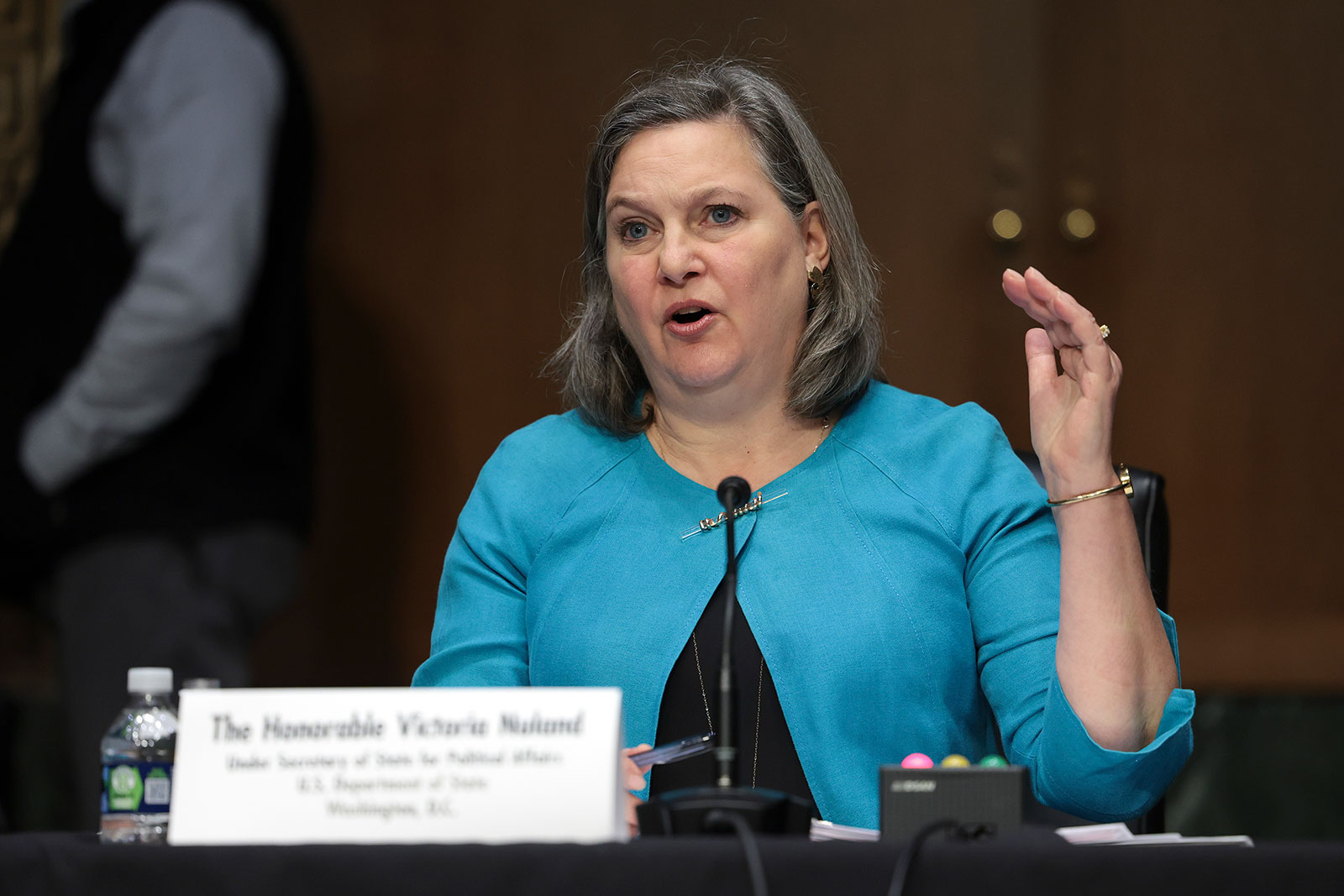
US RESTARTS Military AID to Ukraine: A Bold Move Amid Ceasefire Talks
— The UNITED STATES has agreed to restart military aid and intelligence sharing with Ukraine. This decision comes as Kyiv considers a U.S.-proposed 30-day ceasefire with Russia. The announcement marks a pivotal moment in U.S. support for Ukraine amid ongoing conflict.
A joint statement from U.S. and Ukrainian officials confirmed the resumption of security support. The proposed ceasefire aims to reduce hostilities and open doors for further negotiations between the involved parties, signaling a strategic shift in U.S. foreign policy toward stabilizing Ukraine through diplomacy.
This announcement arrives during heightened tensions between Ukraine and Russia, where continued hostilities threaten regional stability. Since the conflict began, the U.S.’s role has been crucial in providing both military and humanitarian assistance to Ukraine, underscoring its commitment to supporting allies against aggression.

Lithuania’s BOLD Move: QUITS Cluster Bomb BAN Amid Rising Threats
— Lithuania has pulled out of an international treaty banning cluster bombs, citing security threats from Russia. This decision has sparked criticism from human rights groups. Lithuania also plans to exit a treaty banning anti-personnel land mines.
Human Rights Watch and Amnesty International have slammed Lithuania’s move as “disastrous.” They warn it could put civilian lives at risk in the region. Despite the backlash, Lithuania stands firm on its stance due to regional security concerns.
This decision marks a big shift for Lithuania, a former Soviet republic. The country is focusing on its national defense amid rising tensions with Russia. Critics argue this could lead to more militarization in Eastern Europe.

BRITAIN and EUROPE Rally Defense: A Bold Response to Ukraine WAR
— Britain and Europe are ramping up their defense in response to the Ukraine War. Secretary of State for Defence John Healey confirmed this commitment to U.S. Secretary of Defense Pete Hegseth. Healey praised Trump’s NATO policy, emphasizing Europe’s need for self-reliance in defense matters.
NATO’s requirement of spending two percent of GDP on defense has been a standard for years, but many European countries have fallen short. With current threats, discussions are underway to raise this minimum to three or even five percent, similar to Cold War levels. UK Health Minister Stephen Kinnock backed these efforts, saying Europe must be ready to defend its territory.
Kinnock acknowledged America’s push for NATO members to boost their defense capabilities and called it “absolutely right.” He highlighted the need for military readiness and meeting challenges directly. However, he criticized past Conservative governments while overlooking Labour’s own failures during their rule from 1997 to 2010.
During Labour’s last time in power, national defense spending dropped despite Tony Blair’s involvement in Iraq. The British military faced severe equipment shortages due to poor funding then. An inquiry later exposed critical gaps like a lack of helicopters and armored vehicles that compromised troop safety during overseas missions.
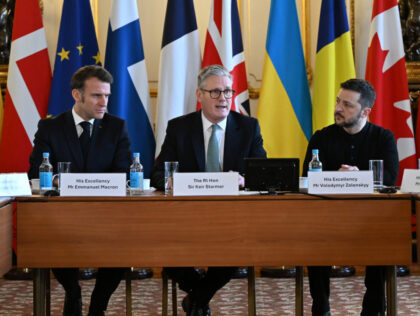
MACRON and STARMER’S Bold Move: Joining Zelensky in Washington?
— The French government is thinking about sending President Emmanuel Macron and UK Prime Minister Sir Keir Starmer to Washington D.C. with Ukrainian President Volodymyr Zelensky. French spokesman Sophie Primas mentioned this plan, hinting it could happen soon. However, Macron’s team later clarified that no trip is planned "at this stage.
Reports reveal frustration in London and Paris over Zelensky’s recent White House visit. European sources suggest Zelensky needs more than a mineral deal to win U.S. support against Russia again. The leaders’ possible visit might aim to boost Ukraine’s position in talks with the U.S. administration.
Despite political differences, Starmer has engaged well with President Trump, securing benefits for the UK like avoiding tariffs and modestly increasing defense budgets. This success might influence the decision to join Zelensky on his next trip to Washington D.C., hoping for better negotiation results with the U.S.;

US and ISRAEL REJECT $53 Billion Gaza Plan: A Bold Stand or Missed Opportunity?
— Egypt proposed a $53 billion plan to rebuild Gaza, gaining broad support but facing rejection from the U.S. and Israel. The White House criticized the plan, stating it ignores complex realities on the ground. Palestinians in Gaza strongly oppose any attempts to displace them, with some international voices warning forced relocation could be seen as ethnic cleansing.
U.S. HALTS Intelligence Sharing with UKRAINE: A New Era of European Uncertainty
The United States has stopped sharing intelligence with Ukraine amidst growing tensions in Europe. French President Macron cautioned Europe to prepare for a scenario where America might not be an ally anymore. Meanwhile, Sir Keir Starmer expressed readiness to deploy military resources for peace efforts in Ukraine at a recent defense summit.

TRUMP’S Bold "Last Warning" to Hamas Over Hostages
— Former President Donald Trump issued a stern warning to Hamas about releasing Israeli hostages. He stated that civilians in Gaza would face serious consequences if hostages were held.
The talks, first reported by Axios, are happening in Qatar. These discussions aim to secure the release of U.S. hostages and explore a broader agreement to end the conflict.
This development highlights significant international news beyond usual UK and US headlines. Trump’s comments emphasize his strong stance on foreign policy issues involving American citizens abroad.

TRUMP’S Bold Demand: Hamas Must Free Hostages NOW
— Former President Donald Trump has issued a stern warning to HAMAS, demanding the immediate release of hostages still held in Gaza. Several hostages recently freed expressed gratitude to Trump for his efforts and urged him to continue working towards freeing the remaining captives. About 60 hostages remain, with around two dozen believed to be alive.
Trump’s team is now engaging directly with Hamas, bypassing traditional intermediaries like Qatar and Egypt. This direct approach aims to speed up negotiations while allowing Trump to apply more pressure on Hamas leaders. After meeting the released hostages, Trump took a firm stance on social media, stressing that failure to comply would result in severe consequences for Hamas.
In a message posted on Truth Social, Trump warned Hamas that their time is running out and advised them to release all hostages immediately or face dire repercussions. He assured support for Israel by promising comprehensive aid if necessary actions are not taken by Hamas promptly. Trump’s message also addressed the people of Gaza, suggesting their future depends on making wise decisions regarding the hostage situation.

“UAE’S BOLD Move: A Thriving Startup Paradise”
— The United Arab Emirates is becoming a global leader in startup growth. The nation attracts innovators with flexible government policies and advanced laws. Entrepreneurs find a welcoming environment thanks to the UAE’s top-notch infrastructure.
The government’s dedication to fostering innovation shows in its strategic plans for new businesses. These efforts create an ecosystem where startups can thrive and boost the economy. This strategy not only strengthens local industries but also draws international talent and investment.
By focusing on entrepreneurship, the UAE stands out as a beacon for business-minded people worldwide. The country’s emphasis on innovation keeps it competitive in the global market, offering opportunities for growth and development.
As more entrepreneurs head to the region, the UAE’s reputation as a startup hub grows stronger by the day, solidifying its place as a thriving paradise for new businesses seeking success on an international scale.

TRUMP’S BOLD Trade WAR: Tariffs on Canada, Mexico, and China
— President Donald Trump has reignited trade tensions by imposing new tariffs on Canada, Mexico, and China. These include a 25% tax on imports from Canada and Mexico and a 10% tariff specifically targeting Canadian energy products. This move is expected to provoke swift retaliation from these nations.
Trump argues that trade disputes with these countries have harmed U.S. interests. China’s national legislature criticized the tariffs, stating they damage both economies and undermine mutually beneficial trade relations. Canadian Prime Minister Justin Trudeau questioned the rationale behind the tariffs, suggesting they aim to weaken Canada’s economy.
Financial markets reacted negatively to the announcement, raising concerns about inflation and uncertainty in international trade relations. Analysts warn this could lead to broader economic conflicts affecting both U.S. and global economies.
Mexico and Canada have yet to respond publicly but are expected to address the issue soon in press conferences. Lawmakers in Congress express concerns over potential fallout from such aggressive measures while international trade organizations closely monitor the situation for its global economic impact.
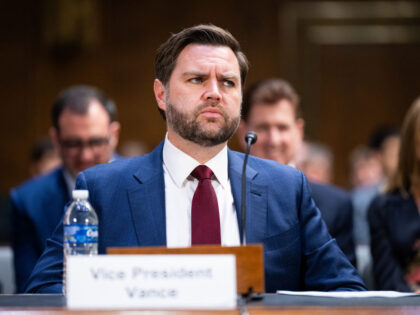
Vance’s BOLD Remarks on Europe’s Military READINESS Stir Controversy
— Senator J.D. Vance sparked a debate with his comments on European military contributions to Ukraine’s security. Speaking on Fox News, he emphasized economic support over troop deployments from countries with limited combat experience. Some viewed his remarks as criticism of Britain and France, despite their active military roles in recent conflicts.
Vance clarified his stance, denying any specific mention of the UK or France while acknowledging their historical alliance with the U.S. He expressed skepticism about smaller European militaries’ effectiveness due to their lack of battlefield experience and equipment concerns.
Highlighting disparities in defense spending among NATO members, Vance noted that while the U.S., UK, France, and Germany invest heavily in defense, other European nations contribute significantly less relative to their GDPs. Countries like Spain and Belgium spend a fraction compared to larger allies, raising questions about fair burden-sharing within NATO.
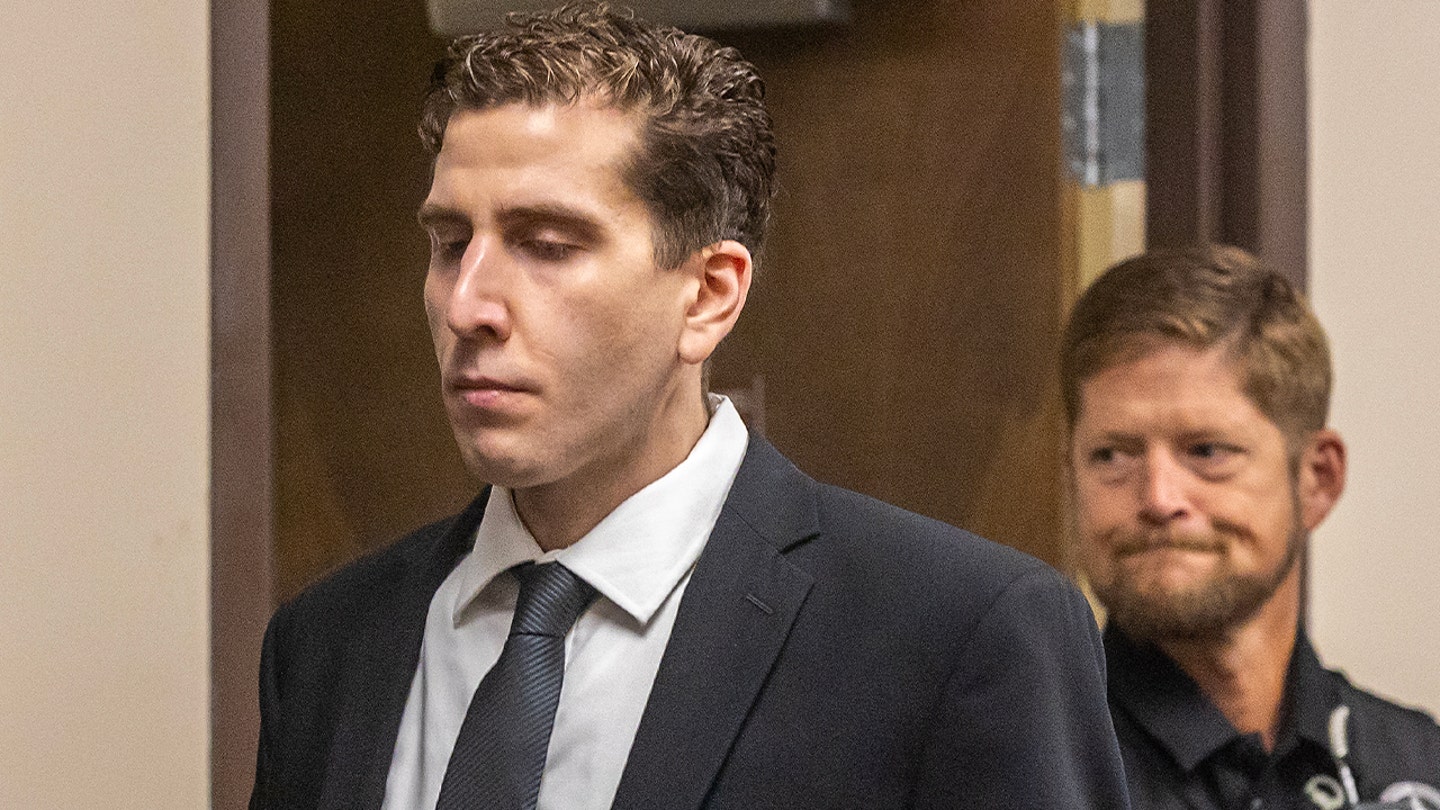
IDAHO Judge’s BOLD Move: Kohberger Case Secrets Exposed
— An IDAHO judge has limited the use of sealed documents in the high-profile case involving Bryan Kohberger, accused of murdering four University of Idaho students. Judge Steven Hippler criticized both defense and prosecution for overusing sealed filings, stating that entire documents were unnecessarily hidden from public view. He noted much of the information was already public or not sensitive.
Judge Hippler will still allow certain information to be redacted, like witness names and victim family details. Documents can also be sealed if they meet criteria under Idaho Court Administrative Rule 32. This rule governs exemptions from public disclosure, ensuring transparency while protecting sensitive data when justified.
The judge urged both parties to adopt less restrictive methods to protect confidential information. He suggested using initials or releasing redacted versions instead of sealing entire documents. This move aims to balance transparency with privacy in a case that has drawn significant public attention.

GREENLAND SHOWDOWN: Prime Minister’s Defiant Stand Against Trump’s Bold Move
— Prime Minister Múte Bourup Egede of Greenland has firmly stated, “Greenland is ours,” in response to President Donald Trump’s interest in buying the territory. This declaration has sparked intense discussions about territorial claims and increased tensions between the U.S. and Denmark, which currently controls Greenland.
The situation highlights the complex ties between the U.S. and Greenland, a region rich in resources and strategically important. Analysts are watching closely to see how this might affect international relations as events continue to unfold.
Global leaders are keeping a close eye on these developments, although reactions from Denmark and other countries have yet to be fully voiced. The evolving situation could present significant diplomatic challenges worldwide.
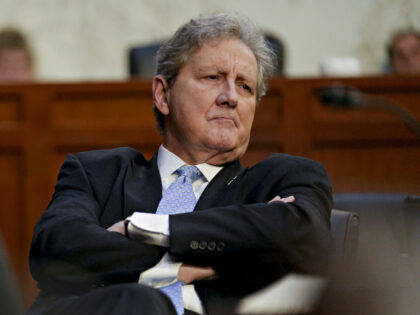
KENNEDY’S Bold Move: Cutting Public Broadcasting’s Federal Funds Sparks Outrage
— Senator John Kennedy has introduced the “No Propaganda Act” to slash federal funding for public broadcasting. He criticized NPR and PBS for using taxpayer money on what he calls opinion journalism. Kennedy pointed out that NPR recently spent $200 million on an office near the Capitol.
Kennedy believes taxpayer dollars shouldn’t fund media organizations engaged in biased reporting. He noted high salaries at NPR, with hosts earning over $500,000 annually and a chief diversity officer making more than $300,000 per year.
Many social media users back Kennedy’s move, criticizing public broadcasting as left-leaning and unnecessary if it can’t support itself financially. One user mentioned they stopped watching PBS long ago due to these concerns.
In January, FCC Chairman Brendan Carr began investigating NPR and PBS for potential legal violations related to airing commercials. This scrutiny adds pressure on these outlets amid ongoing debates about their funding and role in American media.

XRP PRICE Soars: Trump’s Bold Crypto Move Shakes Market
— XRP’s price jumped by 30%, hitting $2.75 after finding support at $2.00. This rise follows talk about its possible inclusion in a US Crypto Reserve.
President Trump suggested the US might add XRP, ADA, and SOL to a national crypto reserve along with Bitcoin and Ethereum. This could change the cryptocurrency world dramatically.
Analyst “Dark Defender” predicts XRP could reach $77.7 soon, showing growing investor hope. These forecasts highlight how government-backed crypto plans might affect market trends.

TRUMP’S Bold SSA Shakeup: What It Means for Americans
— The Social Security Administration (SSA) is reshaping its Office of Analytics, Review, and Oversight (OARO) into existing divisions. This move aims to streamline management and boost data sharing. The SSA wants to improve fraud detection and tackle waste more effectively.
Additionally, the SSA will end agreements with the Retirement and Disability Research Consortium (RDRC), saving about $15 million in 2025. These changes align with President Trump’s Department of Government Efficiency (DOGE), which focuses on modernizing federal technology. However, there’s no direct confirmation that DOGE influenced these specific changes at the SSA.
Acting Social Security Commissioner Lee Dudek says these adjustments are crucial for maintaining program integrity. Democratic senators Ron Wyden and Chuck Schumer raised concerns about the removal of former Acting Commissioner Michelle King, claiming she was ousted for resisting data access pressures.
Future plans regarding further cuts by DOGE at the SSA remain unclear, sparking ongoing discussions among stakeholders. This reflects broader efforts under Trump’s administration to enhance efficiency in social services through governmental reforms.
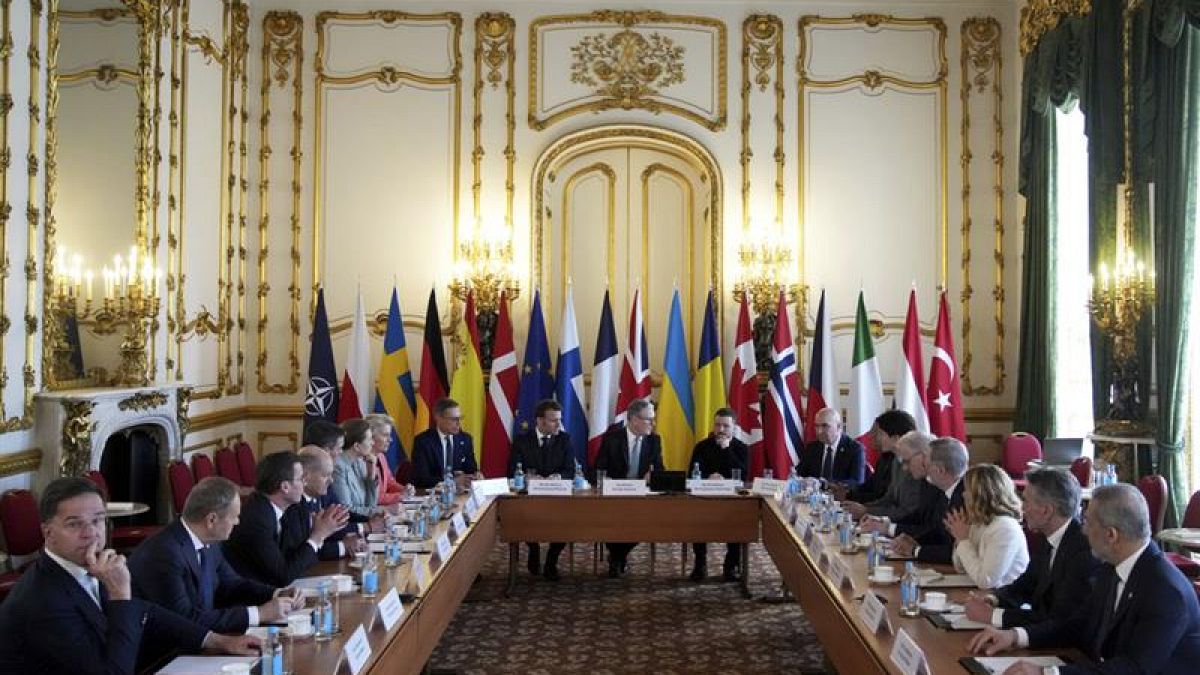
EUROPE’S Bold Move: Seizing Control in Ukraine Talks
— European leaders are eager to steer Ukraine-Russia negotiations. At a London summit, British Prime Minister Keir Starmer stressed the importance of this moment for the West. Their aim is to unify Europe’s stance as Kyiv-Washington relations worsen.
Tensions rose after Ukrainian President Zelensky met with former U.S. President Donald Trump, causing concern across Europe. The meeting reportedly alarmed European leaders who fear a change in U.S. policy could disrupt ongoing efforts in the region.
Europe wants to present a united strategy that prioritizes regional stability and security over outside influences from across the Atlantic. This move shows Europe’s intent to assert its influence and leadership in resolving the conflict effectively and independently.

ZELENSKYY’S London Trip: A Bold Stand Amid Trump Drama
— Ukrainian President Volodymyr Zelenskyy received a warm welcome from British Prime Minister Keir Starmer at 10 Downing Street in London. This meeting followed a tense encounter with former President Donald Trump in Washington, D.C. Despite reporters’ questions about the spat, Zelenskyy remained silent on the matter.
The visit to London came after a public disagreement with Trump and Vice President JD Vance during a televised Oval Office meeting. Britain has agreed to provide Ukraine with a $2.84 billion loan for military assets, according to reports from the Associated Press.
Prime Minister Starmer expressed strong support for Ukraine upon greeting Zelenskyy, emphasizing Britain’s commitment to standing by Ukraine for as long as necessary. He highlighted the importance of achieving lasting peace based on sovereignty and security for Ukraine and Europe.
Starmer’s remarks underscored Britain’s unwavering determination to support Ukraine amidst ongoing tensions with Russia. The meeting aimed to reinforce diplomatic ties and discuss further cooperation between the two nations in pursuit of peace and stability in Europe.

ISRAEL’S Bold Move: Aid to Gaza Halted Amid Ceasefire Clash
— Israel has stopped all humanitarian aid to Gaza, citing Hamas’s refusal to extend a U.S.-backed ceasefire agreement. Prime Minister Netanyahu announced the halt after the ceasefire deal expired. This decision comes during Ramadan and Passover, highlighting the religious significance of this period.
Netanyahu warned of “additional consequences” if Hamas continues rejecting peace talks. Hamas condemned Israel’s action as “cheap blackmail” and a “war crime.” They urged international mediators to pressure Israel into reversing its decision, as Gaza faces dire humanitarian conditions after 17 months of conflict.
The ongoing war in Gaza has resulted in over 45,000 deaths and severe infrastructure damage. Most residents depend on humanitarian aid for survival, worsening their plight with this new development. Additionally, there are still 59 hostages held by various groups within Gaza.
On the same day, Ukrainian President Zelenskyy attended a summit in London amid tensions with U.S. President Trump. This interaction raises concerns about U.S.-Ukraine relations and broader global tensions in March 2025, reflecting critical moments in both conflicts involving Israel-Palestine and Ukraine-Russia dynamics.

“TRUMP’S Bold Peace Plan with Russia and Ukraine Stirs EU Fears”
— European leaders are worried about President Trump’s efforts to broker peace between Ukraine and Russia. The EU’s top diplomat claims Russian President Putin is not interested in peace. Trump mentioned having “very good talks with Russia” but did not share details on any progress made.
NATO allies and long-time U.S. partners are frustrated by Trump’s remarks on Ukraine, seeing them as an attempt to improve ties with Moscow. EU High Representative Kaja Kallas stressed the need for dialogue but noted Russia’s reluctance for peace.
Trump held his first Cabinet meeting, stating NATO membership was not an option for Ukraine, which could change the conflict’s dynamics. Kallas urged more economic and political pressure on Russia to strengthen Ukraine both militarily and diplomatically.
As Trump and Ukrainian President Zelenskyy work towards a minerals deal, there is hope it might lead to ceasefire talks, though doubts linger about its effect on achieving lasting peace.

TRUMP’S Bold Move: UK Could Dodge US Trade Barriers
— Donald Trump praised UK Labour leader Keir Starmer for his effective lobbying during a recent meeting. Trump described the encounter as “tremendously productive.” This hints at a possible exemption for the UK from new US tariffs.
Trump expressed optimism, stating there is “a very good chance at arriving at a very good deal.” This suggests positive developments in US-UK trade relations. The meeting also touched on foreign policy issues, especially concerning Ukraine.
The talks could signal big shifts in transatlantic ties as both nations navigate complex political landscapes. Trump’s remarks highlight potential changes in US trade policy favoring the UK.
Such developments may have far-reaching effects on both countries’ political and economic environments, strengthening their relationship even further.
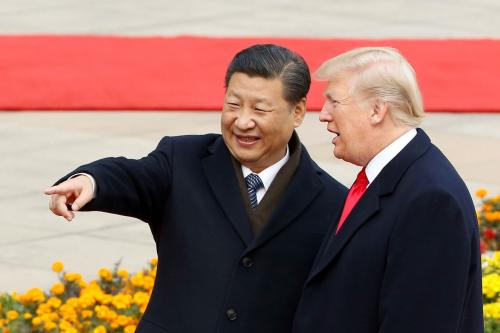
TRUMP’S BOLD Move: NEW Levies on Chinese Shipping
— In a bold move, former President Donald TRUMP proposes steep levies on Chinese-made ships entering U.S. ports. This action could significantly raise import costs amid an ongoing trade war with China. The proposal aims to protect American interests and reduce dependency on Chinese imports, aligning with Trump’s America First agenda.
MUSK’s EMPIRE: $38 BILLION in GOVERNMENT SUPPORT REVEALED
Elon Musk’s business empire, including Tesla and SpaceX, has thrived thanks to $38 billion in government funding. Contracts, loans, subsidies, and tax credits have been crucial in Musk’s rise to becoming the world’s richest person. This revelation highlights the significant role of government support in private enterprise success stories like Musk’s.
EUROPE RELAXES RULES for COMPETITIVE EDGE
The European Union plans to relax sustainability reporting rules to enhance global competitiveness for its businesses. While this deregulation is welcomed by many companies burdened by bureaucracy, critics argue it undermines corporate accountability efforts. The balance between economic growth and environmental responsibility remains a contentious issue in Europe’s policy landscape.

— Wildfire forces evacuation of 30,000 in Pacific Palisades A state of emergency has been declared in Los Angeles as firefighters battle a destructive blaze fueled by strong winds and dry conditions

— Palisades Fire forces mass evacuations in Southern California A significant wildfire has erupted in Pacific Palisades, prompting thousands to flee as emergency services battle the blaze amid extensive property damage and a state of emergency declared by the Governor

Video
EUROPE’S Nuclear Dream: UK and France’s Bold Move for Security
— The UK and France are considering an “Anglo-French Eurodeterrent” as Europe’s alliances shift. They want to reassess their defense roles without depending on the U.S. While this deterrent might not match U.S. capabilities, it offers a strategic choice amid doubts about U.S. reliability under changing administrations.
World leaders’ actions, including those by former President Trump, have led European countries to think about independent defense options. France and the UK are talking about boosting military cooperation to keep regional stability as nuclear powers. They’re focusing on a European-led “Coalition of the Willing” for Ukraine’s security guarantees, showing a move towards self-reliance in defense strategies.
Despite efforts for an Anglo-French deterrent, challenges remain due to reliance on U.S. technology like the UK’s Trident missile system linked with American infrastructure. This dependency raises questions about creating a purely European deterrent amid debates over France’s willingness to use its nuclear arsenal broadly for defense purposes.
While interesting amid global uncertainties, building a self-sufficient European nuclear deterrent faces big hurdles and geopolitical complexities. The joint efforts by the UK and France show Europe’s desire for strategic independence but require navigating tricky military and diplomatic landscapes.
More Videos
Invalid Query
The keyword entered was invalid, or we couldn't gather enough relevant information to construct a thread. Try checking the spelling or entering a broader search term. Often simple one-word terms are enough for our algorithms to build a detailed thread on the topic. Longer multi-word terms will refine the search but create a narrower information thread.
